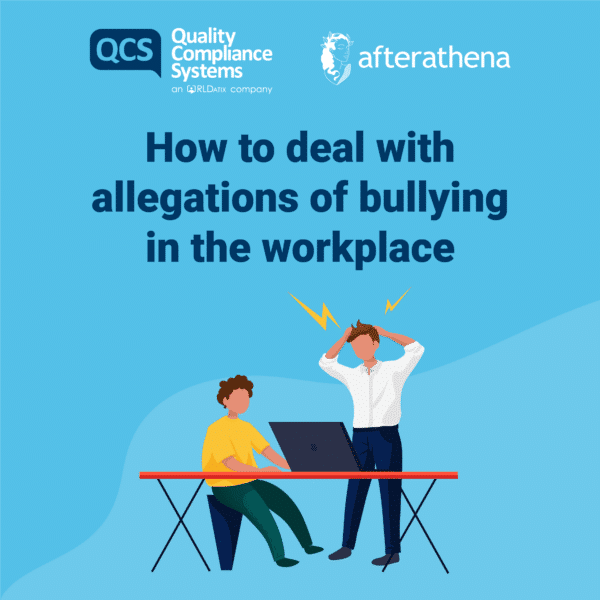Allegations of bullying in the workplace can have serious consequences on all parties concerned, especially if the allegations are not dealt with in the correct and appropriate manner. They can have significant impacts on mental health, job satisfaction, productivity as well as an impact on team morale, workplace culture and reputation.
It is therefore important that you know how to deal with such allegations and the correct steps to take. Bullying can take place between employees within a business, but equally can involve third parties, such as clients, customers or suppliers.
The first question should always be, can the matter be dealt with informally between the parties? The employee may have already attempted this or may feel uncomfortable with this approach. It can be difficult for an employee to raise an allegation of bullying, so care should be taken when broaching the issue of an informal solution, making it clear that the business does not tolerate such behaviour and will investigate fully, if required, or provide assistance in dealing with the matter informally.
If the matter raised is serious, then the suggestion of an informal approach may not be appropriate. In these circumstances, we would recommend a formal process from the start.
1. Investigate
The first stage in any formal process is to investigate the facts and ensure that the process is fair for all concerned. Whilst protecting the employee who made the allegations is important, it is essential that an objective approach is taken until all the facts can be ascertained.
The employee making the complaint should be asked to submit this in writing, including names, dates, times, details and whether any witnesses where present. They should be asked to provide this as soon as possible, so that the matter can be dealt with in a timely manner.
A meeting should then be arranged with the employee to obtain further details about the allegations made. It may also be necessary to meet with any witnesses to the allegations and the accused, if this is an employee.
Following the investigation, further action may need to be taken.
2. Next steps
If the investigation finds that bullying did occur, and the accused is an employee, then the accused should be dealt with under the disciplinary process, following your disciplinary procedure.
It is worth noting that the investigation into the bullying allegation should only establish whether there is a disciplinary case to answer and is not, itself, a disciplinary process (it does not have the appropriate safeguards in place to deal with a disciplinary fairly).
Therefore, the investigation into the bullying allegations will need to be paused whilst the separate disciplinary process takes place and before a conclusion can be delivered to the employee who raised the bullying allegation (they should be informed of this pause in the process, whilst also being mindful of confidentiality to accused who is subject to the disciplinary process).
If the bullying allegations involve a third party, it would be necessary to consider what action is appropriate in relation to this third party. Steps could include safeguards, such as reminding third parties of your policy on bullying and harassment, putting signs up, speaking to the third party concerned, or in the most serious of cases, no longer engaging with that third party (however, contractual obligations should be reviewed before terminating a contract) or requesting that an individual is not involved in the services provided to your business.
3. The conclusion
A conclusion should be communicated to the employee on whether the bullying allegations they raised are founded or not. If founded, and where appropriate, they should be informed of the action taken to address the allegations.
You should also consider how best to manage any on-going working relationship between those involved. It may be appropriate to arrange some form of mediation and/or counselling or to make changes to working patterns, reporting lines or duties. Careful consideration should be taken before changing an employees workplace or duties.
4. Appeal
If the employee is dissatisfied with the outcome in relation to the bullying allegations raised, they should be offered the right to appeal. Where appropriate any appeal should be dealt with someone not previously involved in the original investigation.
Key points for consideration for Employers
- Check if you have a Harassment and Anti-Bullying Policy
- Consider whether the matter can be dealt with informally
- Investigate the allegations
- Hold investigation meetings
- Decide on any further action and follow the appropriate process (i.e. disciplinary process)
- Communicate decisions effectively and promptly
- Deal with any appeal
- Keep written records, including minutes of any meetings






